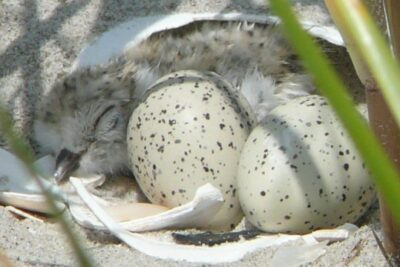
The Benefits and Risks of Using Coffee for Succulents: Explained

Coffee is one of the most popular beverages in the world, enjoyed by millions of people every day. However, coffee is not only consumed by humans - it is also being used as a natural fertilizer for plants, including succulents. Succulents are known for their ability to store water in their leaves, making them hardy and low-maintenance plants. But can coffee really benefit succulents, or is it just a myth? We will explore the benefits and risks of using coffee for succulents, and provide you with a comprehensive understanding of whether or not it is a good idea to incorporate coffee into your succulent care routine.
We will begin by discussing the potential benefits of using coffee for succulents. We will explore how coffee can provide essential nutrients to succulents and contribute to their overall health and growth. Additionally, we will examine the role of coffee in preventing common succulent diseases and pests. However, it is important to consider the potential risks associated with using coffee for succulents, which we will also address in this article. We will discuss the impact of caffeine and other substances found in coffee on succulents, and whether or not it can harm their growth and development. By the end of this article, you will have a clear understanding of the potential benefits and risks of using coffee for succulents, and be able to make an informed decision about incorporating coffee into your succulent care routine.
- Coffee can be used as a natural fertilizer for succulents
- It provides essential nutrients like nitrogen, potassium, and phosphorus
- Coffee grounds can improve the soil drainage and aeration for succulents
- Coffee can help ward off pests and diseases in succulents
- It can stimulate root growth and enhance overall plant health
- The Benefits and Risks of Using Coffee for Succulents: Explained
- However, excessive use of coffee can lead to soil acidity, which can harm succulents
- Overuse can also cause salt build-up in the soil, affecting the plant's ability to absorb water
- It is important to dilute coffee before using it on succulents to avoid negative effects
- Moderation is key when using coffee as a fertilizer for succulents
- Frequently Asked Questions
Coffee can be used as a natural fertilizer for succulents
Using coffee as a natural fertilizer for succulents is a popular and cost-effective method that many plant enthusiasts swear by. Coffee grounds are rich in nutrients such as nitrogen, potassium, and phosphorus, which are essential for the healthy growth of plants. By incorporating coffee grounds into the soil, succulents can benefit from these nutrients and thrive.
One of the main advantages of using coffee as a fertilizer is that it is easily accessible and readily available. Instead of discarding your used coffee grounds, you can give them a second life by repurposing them for your succulents. This not only reduces waste but also provides a sustainable and eco-friendly solution for nourishing your plants.
Furthermore, coffee grounds can improve the drainage of the soil, which is crucial for succulents. These plants, native to arid regions, require well-draining soil to prevent root rot and other moisture-related issues. Coffee grounds act as a natural amendment, enhancing the soil structure and promoting better water absorption and drainage.
However, it is important to note that using coffee grounds as a fertilizer for succulents also comes with certain risks. Firstly, coffee grounds are acidic in nature, which can alter the pH level of the soil. While some succulents can tolerate slightly acidic conditions, others may be sensitive to changes in pH. It is recommended to test the pH of your soil before adding coffee grounds and monitor the plants' response.
 Can Succulents Enhance Indoor Air Quality by Producing Oxygen?
Can Succulents Enhance Indoor Air Quality by Producing Oxygen?Additionally, coffee grounds can contribute to the accumulation of excess salts in the soil over time. This can lead to salt build-up, which is harmful to succulents. To mitigate this risk, it is crucial to use coffee grounds in moderation and ensure that the soil is well-draining. Regularly flushing the soil with water can also help to remove any built-up salts.
Using coffee as a natural fertilizer for succulents can provide numerous benefits, such as nutrient enrichment and improved drainage. However, it is important to be mindful of the potential risks associated with coffee grounds, particularly regarding changes in soil pH and salt accumulation. By understanding these factors and taking appropriate measures, you can effectively use coffee grounds to nurture and enhance the growth of your succulents.
It provides essential nutrients like nitrogen, potassium, and phosphorus
Coffee is not only a beloved beverage for many, but it can also serve as a beneficial addition to your succulent plants. One of the primary benefits of using coffee for succulents is that it provides essential nutrients like nitrogen, potassium, and phosphorus.
Nitrogen is a vital nutrient for plant growth and helps in the development of lush green foliage. Coffee grounds, when added to the soil, act as a slow-release nitrogen source, providing a steady supply of this nutrient to your succulents over time. This can result in healthier and more vibrant plants.
Potassium plays a crucial role in the overall health and vigor of succulents. It aids in water absorption, disease resistance, and the production of flowers and fruits. Coffee contains potassium, and incorporating it into the soil can help boost the potassium levels, promoting the overall well-being of your succulent plants.
Phosphorus is essential for root development, flowering, and fruiting in plants. It assists in energy transfer and promotes overall plant growth. Coffee grounds contain phosphorus, and when used as a fertilizer, they contribute to enhancing the phosphorus levels in the soil, benefiting your succulents' root system and overall growth.
 Can Coffee Grounds Boost Succulent Growth as Fertilizer?
Can Coffee Grounds Boost Succulent Growth as Fertilizer?Adding coffee grounds or using coffee as a liquid fertilizer can be an effective way to provide these essential nutrients to your succulents in a natural and eco-friendly manner. However, it is important to use coffee in moderation and ensure that you are not over-fertilizing your plants.
Next, let's discuss some of the potential risks associated with using coffee for succulents.
Coffee grounds can improve the soil drainage and aeration for succulents
When it comes to growing succulents, proper soil drainage and aeration are crucial for their overall health and well-being. One surprising yet effective way to achieve this is by incorporating coffee grounds into the soil mix.
The organic matter found in coffee grounds helps to improve the soil structure by increasing its porosity. This allows for better airflow and water movement within the soil, preventing excess moisture buildup that can lead to root rot.
Additionally, coffee grounds act as a natural fertilizer for succulents. They are rich in nitrogen, phosphorus, and potassium, which are essential nutrients for plant growth. These nutrients not only promote healthy foliage but also contribute to stronger root development.
It is important to note that coffee grounds should be used in moderation and mixed with other well-draining materials, such as perlite or coarse sand. This will prevent the soil from becoming too compact and ensure that the succulents receive the right balance of moisture and nutrients.
 Using Coffee Grounds as Succulent Fertilizer: Benefits & Guidelines
Using Coffee Grounds as Succulent Fertilizer: Benefits & GuidelinesBenefits of using coffee grounds for succulents:
- Improved soil drainage and aeration
- Enhanced root development
- Natural source of nutrients
- Reduces waste by repurposing coffee grounds
While coffee grounds can be beneficial for succulents, it is essential to consider the potential risks involved as well.
Potential risks of using coffee grounds for succulents:
- Acidity: Coffee grounds are slightly acidic, which can be problematic for certain succulent species that prefer a more alkaline environment. It is advisable to monitor the pH levels of the soil and adjust accordingly.
- Mold and fungus growth: Excessive use of coffee grounds can create an environment conducive to mold and fungus growth. To prevent this, ensure proper drainage and avoid overwatering.
- Unwanted pests: Coffee grounds can attract pests such as ants or fruit flies. Regular monitoring and appropriate pest control measures should be implemented to avoid infestations.
Incorporating coffee grounds into the soil mix can provide numerous benefits for succulents, including improved drainage, enhanced root development, and a natural source of nutrients. However, it is essential to be mindful of the potential risks associated with coffee grounds, such as acidity, mold growth, and attracting pests. By using coffee grounds in moderation and taking proper precautions, you can harness their advantages while minimizing any potential drawbacks.
Coffee can help ward off pests and diseases in succulents
Using coffee as a natural pest repellent and disease deterrent for succulents is a method that has gained popularity among gardeners. The caffeine found in coffee grounds acts as a natural pesticide, making it an effective and chemical-free way to protect your precious succulents from harmful insects.
When coffee grounds are applied to the soil around your succulents, it creates a barrier that repels pests such as slugs, snails, and ants. Additionally, the strong aroma of coffee acts as a natural deterrent, discouraging insects from approaching your plants.
How to use coffee grounds for pest control:
 Can Succulent Fertilizer Also Benefit Other Plants?
Can Succulent Fertilizer Also Benefit Other Plants?- Collect used coffee grounds from your morning brew.
- Allow the coffee grounds to dry out thoroughly.
- Spread a thin layer of the dry coffee grounds around the base of your succulents.
- Be careful not to pile the coffee grounds too high or too close to the succulent stems, as this can cause moisture retention and root rot.
- Reapply the coffee grounds every few weeks or after heavy rainfall to maintain the pest-repellent effect.
Note: It's important to mention that while coffee grounds can be beneficial for pest control, they should be used in moderation. Excessive use of coffee grounds can alter the pH levels of the soil, which may not be suitable for succulents.
Furthermore, coffee grounds can also help suppress diseases in succulents. They contain beneficial compounds that act as natural antifungal agents, preventing the growth and spread of harmful fungi.
How to use coffee grounds to prevent diseases:
- Mix coffee grounds with your potting soil or use them as a top dressing.
- Ensure you use a well-draining soil mix for your succulents.
- Apply the coffee grounds mixture around the base of your succulents.
- Avoid excessive use of coffee grounds, as it can lead to soil acidity.
- Monitor your succulents closely for any signs of overwatering or soil pH imbalance.
By incorporating coffee grounds into your succulent care routine, you can reap the benefits of natural pest control and disease prevention. However, it's essential to remember that coffee grounds should be used alongside other appropriate care practices, such as proper watering, adequate sunlight, and well-draining soil, to ensure the overall health and well-being of your succulents.
It can stimulate root growth and enhance overall plant health
The Benefits and Risks of Using Coffee for Succulents: Explained
Coffee is a popular beverage enjoyed by millions of people worldwide. But did you know that it can also be beneficial for your succulent plants? In this article, we will explore the benefits and risks of using coffee as a natural fertilizer for succulents.
One of the main benefits of using coffee for succulents is its ability to stimulate root growth. Coffee grounds are rich in nutrients such as nitrogen, potassium, and magnesium, which are essential for plant growth. When these nutrients are added to the soil, they can promote root development and help your succulents thrive.
 Can Bearded Dragons Safely Consume Succulents as Part of Their Diet?
Can Bearded Dragons Safely Consume Succulents as Part of Their Diet?Additionally, coffee grounds can improve the overall health of your succulents. The organic matter in coffee can improve soil structure and drainage, preventing waterlogged conditions that can lead to root rot. It also helps to retain moisture in the soil, keeping your plants hydrated and healthy.
It provides a slow-release source of nutrients
Another advantage of using coffee as a fertilizer is that it provides a slow-release source of nutrients for your succulents. Unlike synthetic fertilizers that can release nutrients quickly, coffee grounds release nutrients gradually over time. This slow-release process ensures that your succulents receive a steady supply of nutrients, promoting steady growth without the risk of nutrient burn.
It can attract pests and promote fungal growth
While coffee can offer numerous benefits, it also comes with some risks when used in excess. Coffee grounds are acidic, and excessive acidity can harm your succulents. It is crucial to monitor the pH levels of your soil and adjust the amount of coffee grounds accordingly.
Furthermore, coffee grounds can attract pests such as fruit flies and slugs. These pests can damage your succulents and hinder their growth. To prevent this, it is recommended to avoid using coffee grounds directly on the plant's leaves or stems and opt for incorporating them into the soil instead.
Using coffee as a fertilizer for succulents can provide several benefits such as stimulating root growth, enhancing overall plant health, and providing a slow-release source of nutrients. However, it is essential to be cautious of the risks associated with excessive acidity and pest attraction. By properly monitoring the pH levels and using coffee grounds in moderation, you can enjoy the benefits of using coffee for your succulent plants.
However, excessive use of coffee can lead to soil acidity, which can harm succulents
Coffee grounds have become a popular choice for many gardeners and plant enthusiasts as a natural and affordable way to provide nutrients to their plants. When used in moderation, coffee grounds can offer several benefits to succulents. However, it is essential to be aware of the potential risks associated with excessive use.
 Do Succulents Actually Cleanse and Freshen Indoor Air?
Do Succulents Actually Cleanse and Freshen Indoor Air?1. Enhanced Nutrient Content
Coffee grounds are rich in organic matter, such as nitrogen, phosphorus, and potassium, which are essential nutrients for plant growth. When incorporated into the soil, coffee grounds can help improve the nutrient content, promoting healthier succulent growth and development.
2. Improved Drainage
Succulents thrive in well-draining soil, and coffee grounds can aid in improving the soil's drainage properties. The coarse texture of coffee grounds helps to break up compacted soil, allowing water to flow more freely. This can prevent waterlogging, which is a common problem for succulents and can lead to root rot.
3. Natural Pest Repellent
Coffee grounds have been found to act as a natural deterrent for pests such as slugs, snails, and ants. The strong aroma and acidity of coffee can help to keep these unwanted visitors at bay, protecting your succulents from potential damage.
While the benefits of using coffee grounds for succulents are evident, it is crucial to exercise caution and avoid excessive use. Over time, coffee grounds can increase the soil's acidity, which may harm your succulents. Here are a few potential risks to consider:
1. Soil Acidity
Succulents prefer a slightly acidic to neutral soil pH. However, excessive coffee grounds can cause the soil to become too acidic for these plants. High soil acidity can lead to nutrient imbalances, hinder nutrient uptake, and damage the succulents' roots.
2. Moisture Retention
While improved drainage is beneficial, excessive coffee grounds can also retain moisture for extended periods. Succulents are adapted to dry conditions and prefer well-draining soil. If the soil becomes too saturated, it can lead to root rot and other fungal diseases.
3. Salt Buildup
Coffee grounds contain natural salts, and over time, these salts can accumulate in the soil. This buildup can affect the succulents' ability to take up water and nutrients, causing stress and potential damage to the plants.
 Exploring the Symbolic Meanings of Giving Succulent Plants as Gifts
Exploring the Symbolic Meanings of Giving Succulent Plants as GiftsUsing coffee grounds for succulents can provide several benefits, including enhanced nutrient content, improved drainage, and natural pest repellent. However, it is crucial to use them in moderation to avoid the risks associated with soil acidity, moisture retention, and salt buildup. Remember to monitor your succulents' health and adjust your coffee grounds usage accordingly to ensure their well-being.
Overuse can also cause salt build-up in the soil, affecting the plant's ability to absorb water
Overuse of coffee can have a negative impact on succulents, as it can cause salt build-up in the soil. This salt build-up can affect the plant's ability to absorb water effectively. When coffee is used excessively, the salts present in the coffee grounds can accumulate in the soil over time.
The excessive salt build-up can create an imbalance in the soil's pH levels, making it difficult for succulents to thrive. This can lead to root damage and hinder the plant's overall growth and development.
It is important to note that moderation is key when using coffee as a fertilizer for succulents. While coffee grounds can provide certain benefits, using them in excess can have detrimental effects on the plants.
To avoid salt build-up and potential harm to your succulents, it is recommended to dilute coffee grounds with other organic materials or compost before applying them to the soil. This will help to mitigate the concentration of salts and provide a more balanced environment for the plants to grow.
Another way to prevent overuse of coffee as a fertilizer is by alternating it with other types of fertilizers or organic matter. This will ensure that your succulents receive a diverse range of nutrients and reduce the risk of salt accumulation in the soil.
 The Benefits of Succulents: Enhancing Your Home and Garden
The Benefits of Succulents: Enhancing Your Home and GardenWhile coffee can offer certain benefits for succulents, it is crucial to use it in moderation and with caution. Overuse can lead to salt build-up in the soil, affecting the plant's ability to absorb water and causing potential harm to the roots. By following proper guidelines and using coffee in a balanced manner, you can enjoy the benefits of using coffee as a fertilizer for your succulents without risking their health.
It is important to dilute coffee before using it on succulents to avoid negative effects
Using coffee as a fertilizer for succulents has gained popularity among plant enthusiasts in recent years. However, it is important to understand the benefits and risks associated with this practice.
When used correctly, diluted coffee can provide several benefits to succulents. Coffee grounds are rich in nitrogen, potassium, and phosphorus, which are essential nutrients for plant growth. These nutrients can help stimulate root development, improve overall plant health, and enhance blooming.
However, it is crucial to dilute the coffee before applying it to your succulents. Undiluted coffee can be too acidic and may harm the plants. To dilute the coffee, mix one part coffee with three parts water. This ensures that the concentration of nutrients is balanced and suitable for the plants.
The Benefits of Using Coffee for Succulents
1. Nutrient Boost: Coffee grounds contain essential nutrients that can enrich the soil and provide a natural fertilizer for succulents. These nutrients promote healthy growth and enhance the plant's ability to absorb water and nutrients from the soil.
2. Improved Soil Structure: Coffee grounds can help improve the structure of the soil by adding organic matter. This improves drainage and aeration, which are crucial for the root health of succulents. Additionally, coffee grounds can attract earthworms and other beneficial organisms that further enhance soil fertility.
 Edible Potential of Succulents: Can You Eat These Trendy Plants?
Edible Potential of Succulents: Can You Eat These Trendy Plants?3. Pest Repellent: Coffee grounds have been found to repel certain pests, such as slugs and snails, which can be a common nuisance for succulents. By sprinkling coffee grounds around your plants, you can create a natural barrier that deters these pests from damaging your succulents.
The Risks of Using Coffee for Succulents
1. Over-Acidification: Coffee is naturally acidic, and using undiluted coffee or excessive amounts can increase the acidity of the soil. This can be detrimental to succulents, as they prefer slightly acidic to neutral pH levels. It is crucial to dilute the coffee properly to prevent over-acidification.
2. Root Rot: Succulents are prone to root rot if the soil remains too moist. Coffee grounds, when used in excess or without proper drainage, can contribute to excessive moisture retention, leading to root rot. It is essential to monitor the moisture levels of the soil and ensure proper drainage to avoid this risk.
3. Nutrient Imbalance: While coffee grounds provide essential nutrients, using them as the sole source of fertilization may lead to an imbalance in the nutrient composition. It is advisable to supplement coffee grounds with other organic fertilizers or compost to ensure a well-rounded nutrient profile for your succulents.
Using diluted coffee as a fertilizer for succulents can offer several benefits, such as improved nutrient availability, enhanced soil structure, and natural pest repellent. However, it is crucial to be mindful of the risks associated with coffee usage, including over-acidification, root rot, and nutrient imbalances. By understanding these factors and using coffee in moderation, you can harness its benefits while maintaining the health and well-being of your succulents.
Moderation is key when using coffee as a fertilizer for succulents
Coffee grounds have long been touted as a natural and cost-effective fertilizer for plants, and succulents are no exception. However, it is important to understand the benefits and risks associated with using coffee as a fertilizer for these unique plants. While coffee grounds can offer some advantages to succulents, it is crucial to exercise moderation and follow proper guidelines to ensure the health and well-being of your plants.
 The Benefits of Using Coffee Grounds in Soil for Succulents
The Benefits of Using Coffee Grounds in Soil for SucculentsThe benefits of using coffee grounds for succulents
Coffee grounds are rich in organic matter and nutrients that can benefit succulents in several ways. Here are some of the key advantages:
- Improved soil drainage: Succulents thrive in well-draining soil, and coffee grounds can help improve the drainage capabilities of the soil by loosening it and preventing waterlogging.
- Increase in organic matter: Coffee grounds add organic matter to the soil, which can enhance its overall fertility and help sustain a healthy growth environment for succulents.
- Nutrient boost: Coffee grounds contain essential nutrients like nitrogen, potassium, and phosphorous that can provide a natural fertilizer source for succulents, promoting their growth and overall vitality.
- Acidic pH: Most succulents prefer slightly acidic soil conditions, and coffee grounds can help create a more suitable pH level for their growth.
Potential risks and precautions
While coffee grounds can be beneficial for succulents, it is important to be aware of the potential risks and take necessary precautions to avoid any harm to your plants. Consider the following factors before incorporating coffee grounds into your succulent care routine:
- Overfertilization: Too much coffee can be harmful to succulents, leading to nutrient imbalances and root burn. It is crucial to use coffee grounds in moderation and avoid excessive application.
- Mold and fungus growth: Coffee grounds are high in moisture, which can create a favorable environment for mold and fungus growth. To prevent this, ensure that the coffee grounds are fully dried before applying them to the soil.
- Acidic soil conditions: While some succulents prefer slightly acidic soil, others may not tolerate high acidity levels well. It is important to monitor the pH of the soil and adjust the coffee grounds application accordingly.
Coffee grounds can offer several benefits to succulents when used in moderation and with caution. By understanding the advantages and risks associated with using coffee as a fertilizer, you can ensure the optimal health and growth of your succulent collection.
Frequently Asked Questions
1. Can I use coffee as fertilizer for my succulents?
Yes, coffee can be used as a fertilizer for succulents. It provides some nutrients and can help improve soil drainage.
2. How should I use coffee as a fertilizer for succulents?
Mix brewed coffee with water in a 1:1 ratio and use it to water your succulents once a month. Avoid using coffee grounds directly on the soil.
3. Are there any risks of using coffee for succulents?
Yes, there are risks. Coffee can increase the acidity of the soil, which may not be suitable for all succulents. It is important to monitor the pH levels and adjust accordingly.
4. Can I use any type of coffee for my succulents?
Regular brewed coffee without additives or sweeteners is recommended. Avoid using coffee with high caffeine content, as it can be harmful to succulents.
If you want to read more articles similar to The Benefits and Risks of Using Coffee for Succulents: Explained, you can visit the Uses and Benefits category.






You Must Read